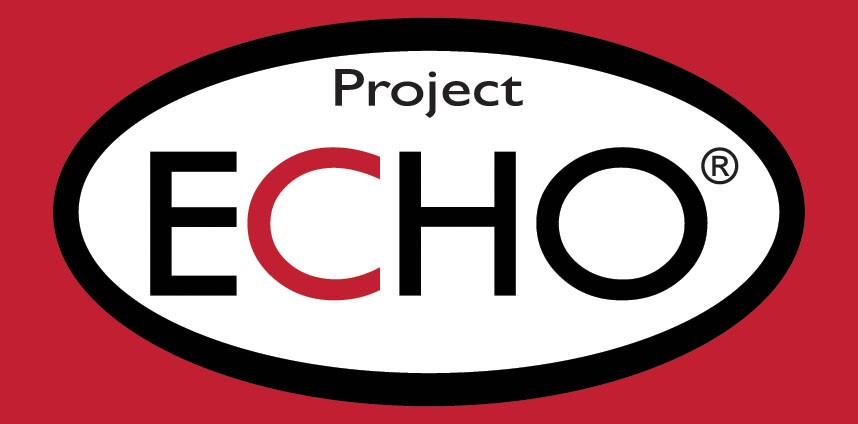Project ECHO
EMPOWER: Enhancing Mental Health Practice, Organizations, and Workforce, through Education and Readiness

Email: opioids@tamu.edu
Texas A&M Health Opioid Task Force
School of Public Health | Texas A&M University
1266 TAMU | SPH Administrative Bldg., Suite 360N
College Station, TX 77843-1266
Phone: 979.436.9370
Email: opioids@tamu.edu
Texas A&M Health Science Center will partner with Project ECHO to improve health care outcomes for Texas, especially those in rural, military, and underserved populations, through telementoring communities of interprofessional teams of subject matter experts reaching primary care providers.
TAMHSC will strengthen the capacity of rural mental health and substance abuse services through collaborative learning and tele-mentoring (Project ECHO).
WHAT IS A TELEECHO PROGRAM?
Primary care providers from multiple locations connect at regularly scheduled times with a team of specialists using low-cost- multi-point videoconferencing.
During TeleECHO programs, providers present de-identified patient cases to expert teams who mentor the providers to manage patients with common, complex conditions. These case-based discussions are supplemented with short didactic presentations to improve content knowledge and share evidence-based best practices.
Providers can connect to TeleECHO programs that are focused on complex conditions of interest to them.
WHAT IS EMPOWER?
Enhancing Mental Health Practice, Organization and Workforce through Education and Readiness (EMPOWER) at the Texas A&M Health Science Center is the first Texas-based opioid-centered Project ECHO hub. EMPOWER will expand the role of specialty and team-based care to address the opioid epidemic by bridging the gap for rural and underserved communities with the use of technology to reach rural health care providers.
WHO CAN PARTICIPATE?
All levels of providers are welcome to participate in Project ECHO programs at no cost. The only associated costs are those for IT equipment (if needed) and time away from the clinic. Participants may include: Primary Care Physicians, Physician Assistants, Nurse Practitioners, Registered Nurses, Psychiatrists, Psychologists, Social Workers, Community Health Workers, Pharmacists, Emergency Medical Technicians or anyone else who cares for patients.
HOW TO PARTICIPATE?
- Connect with a phone or any computer with a camera to the scheduled sessions which can be found on the website.
- Present de-identified patient cases (submit ahead of time to the team with a special form found on the website).
- Participate in didactic presentations (CMEs provided).
- Participants may be asked to complete periodic surveys evaluating practice style, knowledge, and self-efficacy related to common or complex behavioral health problems.
To attend, please click HERE to view a calendar of upcoming TeleECHO clinics.
WHAT ARE THE IT REQUIREMENTS?
You can participate in ECHO programs using a laptop, hand-held mobile device, or a room set up for small group videoconferencing.
HOW MUCH DOES IT COST TO PARTICIPATE?
Participation in TeleECHO programs are free. The only associated costs are those for IT equipment (if needed) and time away from the clinic. Many TeleECHO programs are offered early in the morning or during lunch hours to minimize the time away from direct patient care. Most programs already possess the required IT equipment to connect via video (Internet and webcam) so no additional costs are incurred.
BENEFITS OF PARTICIPATION
Primary Care Providers Development and Retention
Through Project ECHO, primary care providers acquire new skills and competencies, expanding access to care. They become part of a community of learners, increasing professional satisfaction and decreasing feelings of professional isolation. For a health center, this means that providers are more productive and stay in their positions longer.
Continued Learning
Health centers and their providers also enjoy no-cost access to continued learning and specialist consultations during the TeleECHO program. This enables health centers to be part of a knowledge network. CMEs will be offered with most ECHO programs.
Increased Efficiency
Project ECHO has allowed health centers to see more patients and to better utilize their staff to serve more patients overall. The model allows health centers to be part of a professional network and referral network, making it easier to get patients in to be seen, a process which previously could take weeks. This standardization of best practices also strengthens the health system as a whole.
WHO WILL EMPOWER HELP?
It can be an enormous hurdle for rural patients to seek advanced care for chronic or complex conditions. Often it is too expensive for patients to afford specialized care, or even the trip to receive assessments. The wait for these specialty appointments can take months, causing patients to suffer less-than-ideal health outcomes.
Lack of access to specialty care is a major barrier for patients, as health care providers within isolated and rural communities often do not have the resources and education to support the complex medical conditions.
EMPOWER will bring expanded health care to these patients, without needed to transport the patient to specialists, as well as educate rural health care providers on how to fight complex problems such as the opioid epidemic in their communities.
HOW WILL EMPOWER COMBAT THE OPIOID EPIDEMIC?
The initial ECHO clinic will be on the opioid epidemic. EMPOWER will consist of ECHO clinics to help rural health care providers across Texas address the opioid epidemic for their patients, and increase rural health care access. By moving medical knowledge, not patients, patients can be treated where they are, rather than where specialists practice.
EMPOWER is a guided practice model where the primary care provider retains responsibility for managing the patient. Usually in telemedicine, the specialists assumes care of the patient, but with the ECHO model, that patient's rural health care providers provide care and over time operates with increased independence as their skills and self-efficacy grows.
These ECHO programs will begin by educating rural health care providers on the program, as well as enhancing their understanding of the opioid epidemic. Examples include educating rural health care providers on how to avoid over prescribing opioids, caring for patients who are on opioids, as well as educating providers on how to receive X-waivers to prescribe drugs that help manage and treat opioid dependencies.